Choosing between 50% and 70% window tints can be difficult. Each offers unique benefits in heat rejection, glare reduction, style, and legality. In this guide, we have broken down their key differences, pros, and cons, so you can confidently pick the perfect tint for your car. Read on to make the right choice!
Understanding Tint Percentage
Before we get into which option to choose, it is fundamental to define what window tint percentages actually mean in terms of your driving experience.
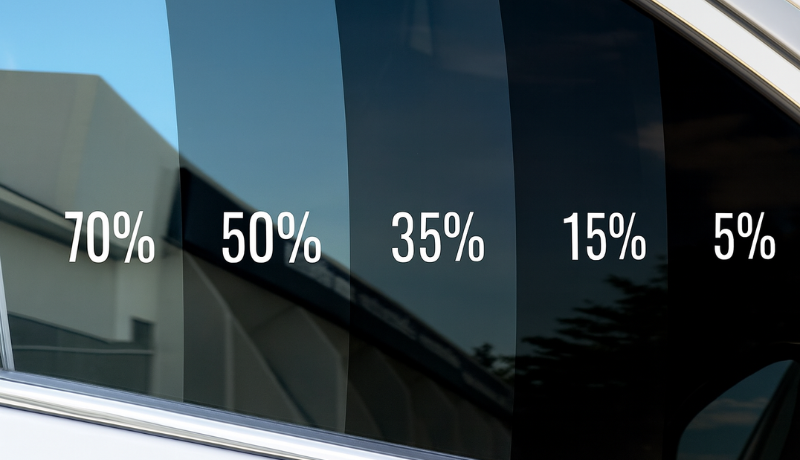
Breaking down VLT
Visible Light Transmission (VLT) is the standard measurement to rate window tints. Thus, if a film has 70% VLT, 70% visible light is entering your car through that film.
If it has 50% VLT, then 50% visible light can pass through it. This percentage will be crucial as it directly determines how dark or light your windows appear.
Think about it in terms of wearing sunglasses. A pair with lightly tinted lenses is something like 70% tint; medium-shade sunglasses resemble 50% tint. The lower the number, the darker things appear.
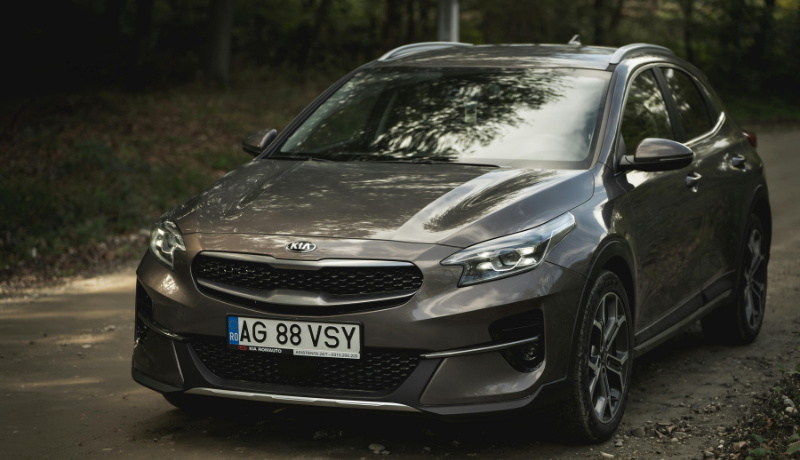
How Tint Meters Work
Professional installers often make use of such a tint meter in order to measure the level of VLT. This device shines light through your window and calculates the amount passing through. It is important to note that factory glass carries a small tint in itself.
For example, factory glass typically starts at around 75-80%. Once you layer a film over that, the numbers combine. If you put 70% film on glass that already has an 80% factory tint. You won’t get a result of 70%; it’s more likely to be closer to 56%.
These tints come in various percentages, like 20%, 30%, 50%, and 70% according to VLT. This is why we can have two cars with the same tint film, but because their stock windows are different, they will look different.
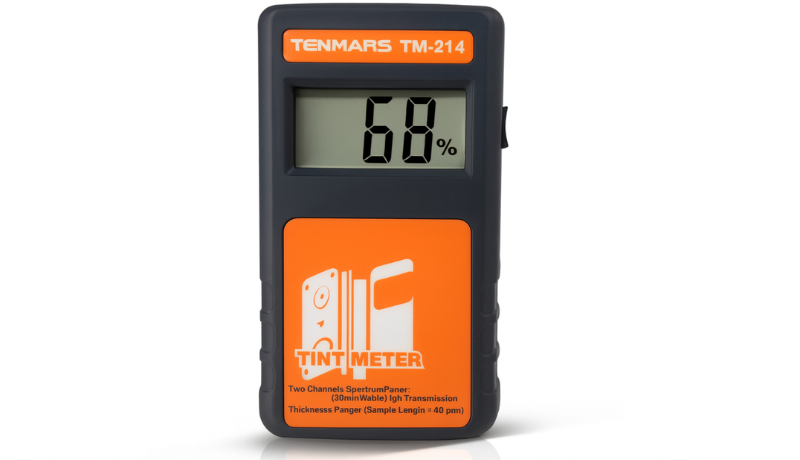
Why VLT Matters Beyond Appearance
The VLT percentage you choose will have an impact on more than your looks. It will affect the heat that builds inside your car, visibility present during the day and night, and probably whether your vehicle is legal according to your local tinting laws.
At 70% for example, it will give clarity and thus help to avoid costly problems with fines, while at 50 percent tint, more comfort and glare reduction will be obtained. Understanding these things will help you not to suffer regrets later.
What is 70% Window Tint?
There are different types of window tint as discussed above, but a 70% tint is certainly one of the lightest yet most considered by drivers wishing to see through, but at the same time partially shielded.

Appearance and First Impressions
It’s almost invisible to outside watchers, except maybe to the very keen observer who would notice a smoky shade, but your windows would, for most purposes, appear almost clear. Many people choose to go for 70% because it leaves their car looking factory-fresh rather than heavily modified.
This is what makes it popular with someone wanting their car to seem professionally done or neat rather than loud and showy. Most business drivers prefer this option, or those who commute, or anyone who prefers to keep things somewhat discreet.
Advantages of 70% Tint Film
It’s very light, but it still serves a purpose. It keeps a little more of the UV rays off your skin and helps protect the interior of the car from sun damage and fading over time.

It also eases the glare from headlights and sunlight, especially during those drives at sunrise and sunset. Driving up to midnight remains safe and clear, without having impaired vision.
Another point is legality. In most states, 70 percent is considered within the legal range for front windows, so there is no need to worry about fines or having to take the tint off later on.
Disadvantages of 70% Tint Film
The worst thing about it is its ability to lower the heat. In hot parts of the country, 70 percent tint really does not cool things down too well at all. You will find yourself feeling a lot of warmth inside your car.
Hence, this type of tint is best for a driver who lives a cool lifestyle and, at the same time, cares more about legality, a clean appearance, and long-lasting performance than comfort.
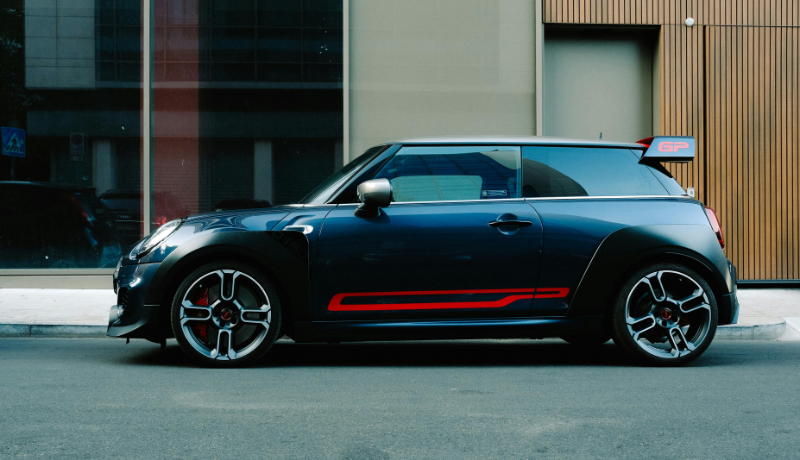
Who Should Go for 70% Tint Film?
70% tint is good if you want the factory look without too much difference, except you would want it to have a bit more protection. It is also suitable if you mostly drive at night or in low-light conditions because darker tints could be a danger.
What is 50% Window Tint?
Now, we move to 50% tint, which is darker and gives a totally different proportion between style and function in color.
Appearance and Visibility
A 50% tint makes your windows look lightly shaded without being too dark. It’s easy to notice compared to clear glass, but still far from a blackout. This gives your car a balanced, stylish look while keeping good visibility.
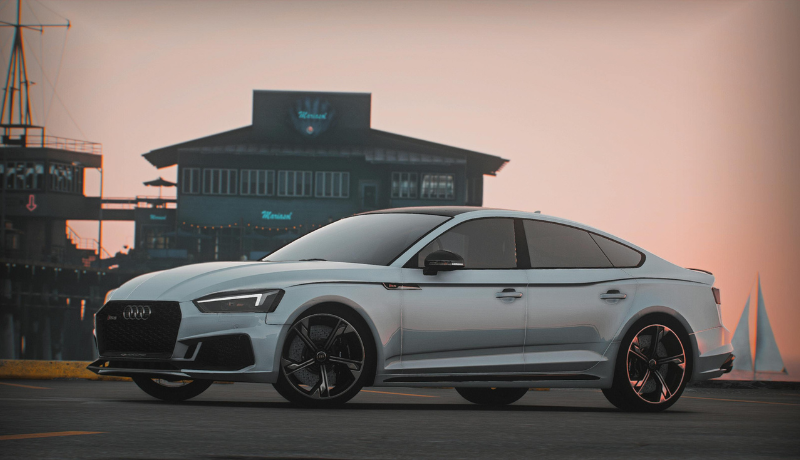
Advantages of 50% Tint Film
This indicates that this is a very good UV filter at 50% and very high heat rejection, for keeping the heat in the car down, making long journeys or parking for long hours much more comfortable or chill for the car.
Less glare to the eyes from the car headlights in addition to reflective objects, so they do not have to work as much. It also improves the safety and concentration of your driving.
Definitely, 50% gives stronger protection from sunlight deterioration of your car’s interior against fading. Cracking and discoloration occur over the years. That should save a lot for future repair costs to keep up the resale value as well.
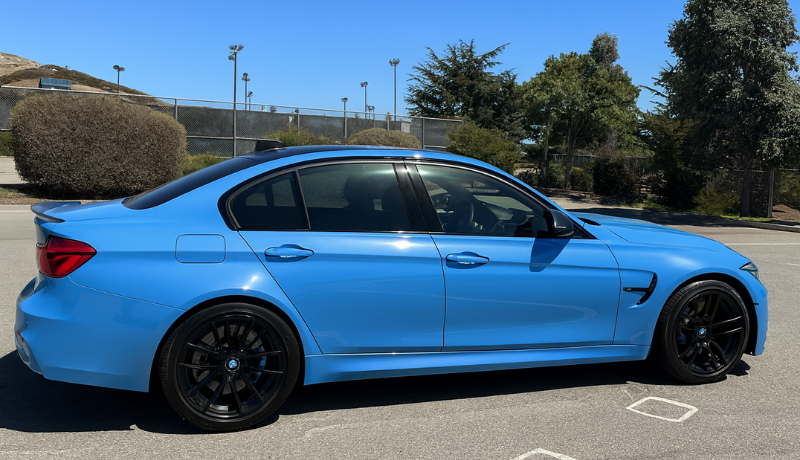
Disadvantages of 50% Tint Film
A 50% tint provides perhaps the most accurate, but probably the first severe drawback of illegality. While most states will let tint up to 70%, 50% may not be allowed on your front windows. Therefore, if this were done without checking at all with local law, you may have to pay a fine.
Then, again, 50% may affect nighttime vision, which, in some cases, could be difficult for people with less-than-perfect eyesight.
Who Should Go for 50% Tint Film?
Fifty percent tint is an excellent option considering that it has minimal compromise in visibility. Place it on cars that are usually parked in sunny and hot regions, and save on heat performance without compromising visibility.
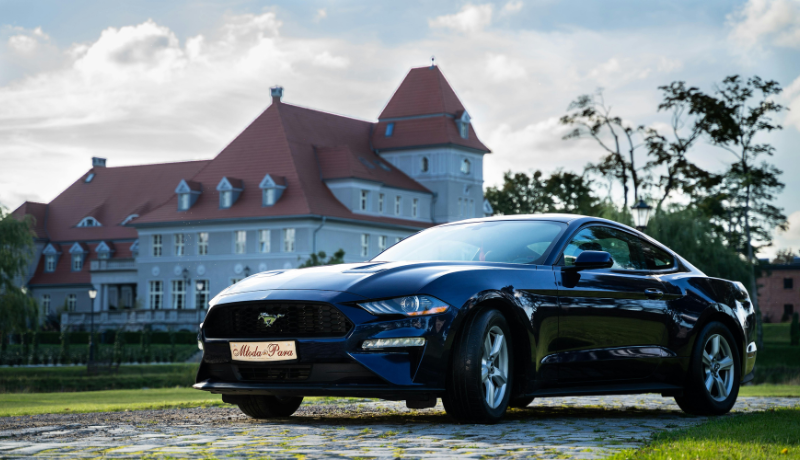
Side-to-Side Comparison: 70% vs. 50%
Viewing every tint usually is a healthy habit, but then, if it is viewed side by side with the other tint, one would really have a better appreciation of the differences presented by these two tints.
Feature Comparison
| Feature | 70% Tint | 50% Tint |
|---|---|---|
| Light Allowed In | 70% of light passes through | 50% of light passes through |
| Appearance | Very light, almost invisible | Medium-light, shaded look |
| Heat Rejection | Low, minimal cooling | Moderate, noticeable comfort |
| Glare Reduction | Mild, some relief | Moderate, stronger relief |
| Legality | Legal in most states for fronts | Restricted in some states |
Real Life Application
For people who don’t want many changes, 70% tints are recommended as they will make your vehicle look almost as natural as it originally was and reduce glare and UV screen considerably.
For safety and clarity, legality, a 50% tint is even more refreshing, because it reduces more heat and brightness, but in that case, you’d better check those local laws before installing it.
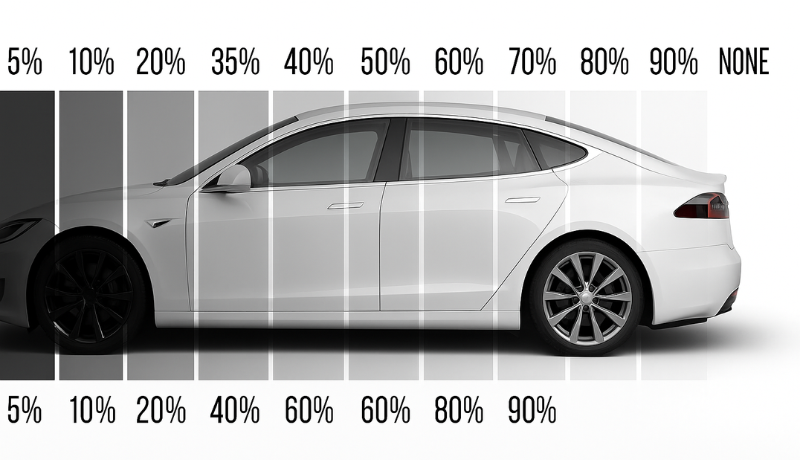
Otherwise, 70% would be cooler or more reasonable during cloudy conditions, and as for hot sunny days, where freedom and comfort are provided, a 50% tint does the trick.
The maintenance is also a significant factor for both tints. You must know window tint cleaning tips to make your tint last longer.
How To Choose the Best Tint Film?
Such things as 70% and 50% are just numbers. How they fit your life is what really matters. So, choose the right window tint for your car according to your comfort level.
Check Local Tint Laws
All states have their laws, and sometimes a law could differ even in a city or county. While 70% is usually safe, 50% might be restricted, so check your DMV website or ask a tint installation professional. Follow the law to save yourself headaches later.
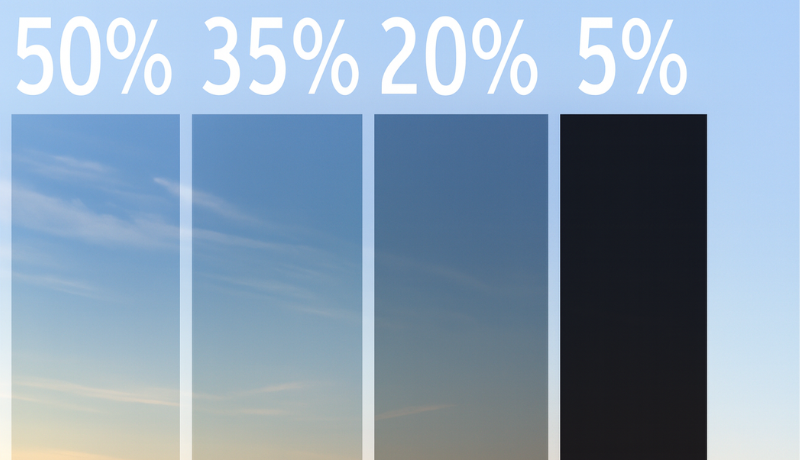
Personal Preference & Style
Some love it natural, almost invisible; other people just want the punchy hit of 50 to add a little flair to the style. Think about how much attention your car will get and how you want to display it.
Budget Considerations
Apart from taste, the cost of the window tints is also a significant factor. Consider checking the costs of different tints before choosing one.
Climate & Heat Control
A 50% tint is worth risking if you’re in one of the very hot states like Arizona, Texas, and Florida, because you can really feel the difference in temperature when you have it in car windows.
70% may be sufficient to make you feel comfortable, though, if you’re in some cooler states where you wouldn’t sweat as much.
Nighttime Driving Visibility

70% might be preferred for clarity if you do a lot of night driving. For the rest, a small difference in visibility owing to 50% would not bother because very few drive at night. Definitely, personal comfort plays a huge role here.
FAQs
Q1: Can I have different percentage tints on different windows?
Certainly, most people will tint their front windows to 70% according to the law. The rear windows can either be tinted 50% or darker for comfort. This kind of combination is highly common.
Q2: Are 50% and 70% window tints legal?
In most regions, yes. These two tints usually comply with state laws while still offering protection and style.
Q3: Will window tint protect the value inside the car?
Yes, both of them will prevent UV rays. They can also lower fading and cracking over their lifetime.
Q4: Would tint help with fuel efficiency?
Indirectly yes. Making sure that your car stays cooler, most of the time, because of having 50% means you rely less on air conditioning and thus improve fuel efficiency slightly.
Conclusion
Finding the perfect car window tint balance? A 50% tint offers style and comfort, while a 70% can ensure clarity and full legality. Consider your local climate, driving habits, and personal preference before choosing the right tint film.
Either choice can enhance your car’s look and comfort, making tinting a smart upgrade for your vehicle!
Maximize Comfort and Protection with Carlike Window Tint
Carlike Film’s advanced window tint films block up to 66% solar energy, reject 99.9% UV rays, and offer up to 95% privacy levels. Help you drive cooler, protect interiors, and secure your valuables. Installing high-quality window tint films can also enhance your car’s style.
Contact Carlike today for a quote and discover the perfect tint for your needs!
